
By Dr. Joseph Mercola | mercola.com
Story at-a-glance
- “A Quest for Meaning” follows two childhood friends as they travel the globe in search of the meaning of life
- Questions about the collective beliefs that have shaped Western civilization are investigated, as are the changes in consciousness we now see as more people are becoming inspired to live more in harmony with the natural world
- For many, the way to reconnect with nature is through food — planting, tending, harvesting and eating what they’ve grown. Or, at the very least, knowing where the food comes from and how it was grown
- A finite world cannot accommodate infinite consumption. The current system must be replaced with a new system that takes only that which is required and returns to the earth something that supports the continued cycle of growth
- Modern science tells us we’re not only interdependent with nature here on planet Earth, but we’re also interdependent with Universe as a whole. Quantum mechanics also tells us that there’s no way of breaking this unity
The film, “A Quest for Meaning” follows two childhood friends as they travel the globe in search for the meaning of life. Questions about the collective beliefs that have shaped Western civilization are investigated, as are the changes in consciousness we now see as more and more people are becoming inspired to live more in harmony with themselves, each other, and the natural world.
Where do we, as humans, belong if we’re not part of the natural world? And if we’re part of the natural world, how can we survive its destruction?
The American Dream Needs an Overhaul
Marc, a bottled water salesman in New York City, was living the American dream. His job — convincing Americans that bottled water was a worthy luxury — paid well; he had everything he thought he wanted. After a 10-year separation, Nathanael (the film’s director and cameraman) visits Marc in New York City. Thinking Marc seemed a bit out of place in this “high-life,” Nathanael left him with several environmental documentaries “to shake him up a little bit.”
Marc admits he had no intention of watching any of them. But, as fate would have it, a broken foot left him with little else to do. Right after that, the financial melt-down of 2008 hit and, along with the rest of us, he realized that the greed of a few had placed the future of the entire planet in jeopardy. “I was now convinced that the system was incapable of providing a solution to the problems it had created,” he says. “And as a water salesman in Manhattan, I was also part of the problem.”
To ward off cynicism and depression, Marc left everything behind and began to search for the answers to his questions. On the way, he convinced Nathanael to join him and record their travels, and together they set off on a journey that shook the foundations of their beliefs and the principles by which they lived.
Without Nature, There Is No Life
In the film, their journey takes them to India, where locals have managed to revitalize the economy following the closing of mines by investing in agricultural education and tools. As followers of Gandhi, they promote the concept of “swaraj,” which is the idea that you are responsible for yourself and the world around you. You must be a good steward. To learn more about Gandhi and his views on the economy, they attend a seminar on “Gandhi and Globalization” held by Dr. Vandana Shiva.
Originally trained as a physicist, Shiva became involved in a movement to protect the forests of the Himalayas. She began writing about ecological problems, and the rest, as they say, is history. Shiva is now one of the most well-recognized faces of the organic farming movement.
“Things are changing,” she says, “but they’re changing in the wrong direction because the most prominent change is driven by giant corporations [that] are turning everything into a commodity. There are no people, no nature, no culture, no values. The change we need is a change that helps us recognize that if we continue on this present path … humanity will annihilate the conditions for its living on this planet.”
As noted by Shiva, large corporations are very good at eliminating small farmers, but they have no viable plan for how to feed the world once all small farmers are gone. “Recognition that nature is the condition of our being alive is the shift we need to make. We have to stop thinking about nature as wilderness, and think of it as the condition for life,” she says.
For many, the way they reconnect with nature is through food — planting, tending, harvesting and eating what they’ve grown. Or, at the very least, it’s knowing where the food comes from and how it was grown, “making sure nature’s contribution has not been abused by corporate greed.” In other words, it’s about making sure the food you buy has not been genetically engineered (GE) or doused with chemicals that destroy the environment and harm wildlife and the farmers themselves.
One of the most harmful effects of GE seeds is often overlooked. By making seed sharing illegal, large GE seed corporations have made farmers completely dependent on their GE seeds — and the chemicals designed to accompany them.
The financial strain has led to an epidemic of farmer suicides in India, as crop failures can quickly lead to financial ruin, burying the farmers in debt they cannot pay off. Historically, you could always trade seeds with your neighbors, but patented seeds must be bought anew each year, and prices just keep going up.
Creating a Cyclical Economy
As noted in the film, “You cannot have unlimited economic growth on a limited planet. You cannot have infinite growth in a finite world.” The current system cannot be fixed; it must be replaced with a new system that takes only that which is required and returns to the earth something that supports the continued cycle of growth.
Shiva notes that nowadays we hear a lot about “green consumerism,” but what needs to be questioned is the very idea of consumerism itself. “The reduction of our identities to that of consumers is part of the problem,” she says. “Recovery of our identities — as creators, users, and makers of things — is part of the solution.” Part of this also involves regaining respect for physical work, which you gain when working in the fields or in your garden, growing your food.
The common view that corporations are our sole means of support is equally fallacious. We don’t need corporations to live, eat and put a roof over our head. Nature — fields, forests, plants, rivers, rain — and human communities working together, are what provide lasting security and generate livelihood. “Money is just a means of exchange, it’s not real security. So, people don’t need to fear.” Shiva adds:
“Overall, my vision of another economy is, in every place, people producing in sustainable ways, generating livelihoods and meeting their needs. Decentralized economies everywhere … [not this] crazy world where everything has to be manufactured in China, and everywhere else people sit unemployed.
And because they’re unemployed and have no money, the only place they can shop is at a Walmart, because they bring their stuff from China and sell cheap. What we need is a shift from this idea of false cheapness that has a very high cost for the planet and people, to an idea of authentic affordability [with] low cost for the planet and low cost for the people.”
‘Reformatting the Hard Drive’
While Marc set out to make a film about alternative lifestyles, just a few days at Shiva’s ashram completely changed how he viewed the world. “It completely reformatted my hard drive,” he says. “Blinded by progress and technology, [the Western world] has completely lost touch with the essential things in life.” These essentials include not only respect for the natural world, but also the spiritual world.
An Indian yoga teacher stresses the idea that modern science and spiritual science are not mutually exclusive, but need to be balanced because, while you can buy the things you need, you cannot buy happiness. That you must find and generate from within, and there are spiritual principles, spiritual sciences, that can help you find what you’re looking for.
From India, the journey continues to France, where they interview a farmer who again stresses the importance of reconnecting with nature. They also talk to a sociologist who reviews the history of human connection to nature. While man’s fate used to be closely intertwined with nature and hinged on the ability to live in harmony with natural laws, over time we learned to dominate nature, and our dominance eventually led to our becoming disconnected from it.
Connecting Mind-Body-Spirit — Becoming a Human Being Rather Than Being a Human Doer
In Mexico, the pair investigate Central American culture and spirituality and talk to a medicine man who points out that societal change always begins with individual change. We have become indoctrinated by corporate advertising and have largely forgotten how to think properly. For example, if you do not want to be ill, you must stop thinking about how to treat disease and start thinking about what it takes to be healthy. Thoughts are a creative force, so be mindful of where you place your focus.
The investigation into consciousness and self-awareness continues in Guatemala, where they speak to Chaty Secaira, a meditation instructor and mystic, about the nature of reality. “We see only one side of creation,” she says. “We see only what is visible. But there’s a whole other side that is invisible, that can only be seen with the eyes of the soul. You have to open your heart and open your mind in order to allow this level of perception.”
Meditation is one way of connecting with your authentic self and the invisible part of creation, and the filmmakers set out on a rigorous spiritual program of meditation and fasting in the Guatemalan jungle. “Inside every person, there is some of [the] divine element,” Secaira says. “Our mission is to unify ourselves with this divine element.”
Science Confirms Our Interdependence
Back in San Francisco, the pair follow the path of reason, searching for answers in modern science. Astrophysicist Trinh Xuan Thuan agrees to answer a few of their questions. “Twentieth-century science has only just discovered, or rediscovered, what Buddhism has been telling us for 2,500 years, namely the concept of interdependence,” Thuan says. “Everything is connected.”
Ever since the 1950s, scientists have increasingly been confronted with evidence that we are “made of stardust; we are children of the stars.” The atoms that make up your body “are made from the nuclear reactions of the stars.” According to Thuan, “If it weren’t for the stars, we wouldn’t even exist.” What this means is that we’re not only interdependent with nature here on planet Earth, we’re also interdependent with the universe as a whole.
Quantum mechanics also tells us that there’s no way of breaking this intrinsic unity. Once two particles have interacted, you cannot break their connection. Separate them by millions of light years, and they still respond in tandem; what happens to one happens to the other — instantaneously, and without any information transfer between them.
In other words, there is only one thing in this universe, and we are all “it.” “The conclusion I draw from this is that science is not the only way to observe reality,” Thuan says. “There are other windows into reality.”
The Root of the Problem
Cassandra Vieten, director of the Institute of Noetic Sciences, adds, “Many of the problems we face … are grounded in limitations in our human consciousness.” While egotism is rampant, we’ve not taken it to the next logical step, which is to realize that self-preservation demands that we include everyone, not just a few that we deem worthy.
“Inequity of resources, violence, war, climate change — they spring from the way we view the world,” Vieten says. She also points out that we typically don’t realize we’re looking at the world through our own filter, our own world view; we simply believe we’re seeing the truth. One of the things contemplative practices such as meditation allows us to do is recognize that “thoughts are just thoughts, beliefs are just beliefs, and they’re not truly who we are. They’re just … working hypotheses.”
She gives the following example: During meditation, you may come to realize that you view the world as a dangerous place, and that this view has colored your actions since childhood. This insight then offers you the opportunity to choose to see differently; to shift your world view. What if the world isn’t a dangerous place? Then what would I see, think and do?
This kind of self-awareness automatically leads to shifts in thought patterns and behavior. Values change, and along with it, your relationship to yourself and others change too. “Listening to Cassandra … I realized the beliefs I had built my life on had totally collapsed during this trip,” Marc says.
“They had been replaced by new hypotheses, like the gut feeling that the world is not just made of matter, [and] that chasing after money and social status leads us away from what is really important.” However, the world around him didn’t conform to these new ways of looking at the world. Everywhere he looked, he saw messages “inciting people to consume and pollute.”
How Collective Beliefs Take Shape
The next stop on their journey is a visit to Bruce Lipton, Ph.D., who discusses how collective beliefs emerge and take shape. In a nutshell, there are three perennial questions that drive collective world views:
- How did we get here?
- Why are we here?
- How do we make the best of it?
When the population accepts the answers to these questions provided by some authority, that authority by default becomes the “truth provider” to all other worldly questions as well. The church was the truth provider for a long time, and the spiritual reality was paramount. Once science began providing the answers, the spiritual world was relegated to the proverbial broom closet.
Science said, you don’t need spirituality because the world is just a big machine. There’s no evidence “spirit” is anywhere to be found. We got here through random mutations, and there’s no purpose for our being here since the whole of creation was a big accident. To top it off, we were given the evolutionary theory of “survival of the fittest.” It’s a tough, mean world out there and you have to fight to survive. So, life became all about the struggle to get to the top and stay there. The world of today is the end result of these beliefs.
Fortunately, these beliefs are now changing. We’re starting to see that we got here through adaptive mutations — the ability of an organism to adapt to its environment. Since we’re an interdependent part of nature, it becomes obvious that, as creative thinkers, we are here to create and maintain harmony, and that the only way we can survive is through cooperation. Competition and separatism is what’s killing us, both individually and as a collective.
We still live in an oligarchy where a few people make a lot of important decisions, most if not all of which are driven by capitalism. These rulers naturally promote their own continuation, but their days are numbered. Slowly but surely, we’re starting to transition into a whole new worldview built on cooperation and interdependence. It’s up to you to be this change. As Marc says, “To change the world, you have to change your vision of it. And in order for this change to take place, we are all called to evolve.”



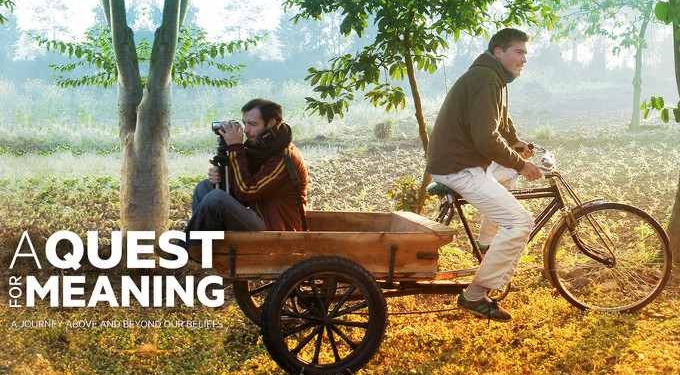

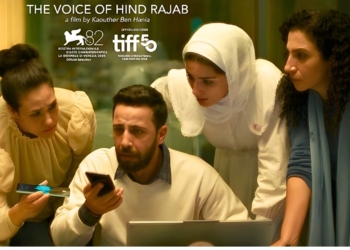
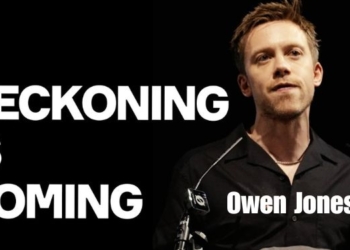

![Who Is Bobby Kennedy? [30-Minute Film on RFK Jr.’s Life, Narrated by Woody Harrelson]](https://consciouslifenews.com/wp-content/uploads/2024/05/who-is-bobby-kennedy-350x250.jpg)
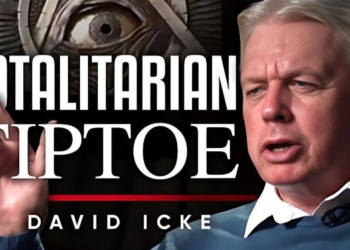
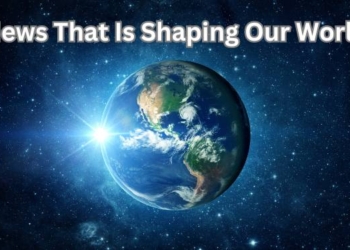




![Everything You Ever Wanted to Know About 9/11 Conspiracy Theory in Under 5 Minutes [VIDEO] | by James Corbett](https://consciouslifenews.com/wp-content/uploads/2018/09/911-a-conspiracy-theory-120x86.jpg)
